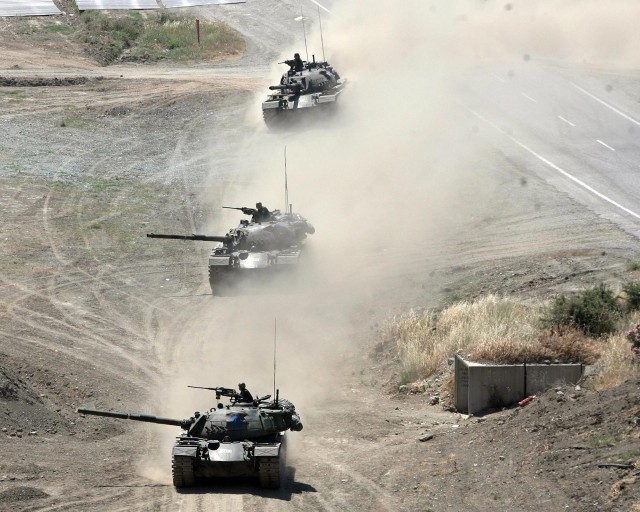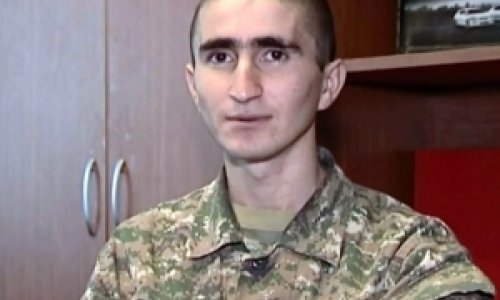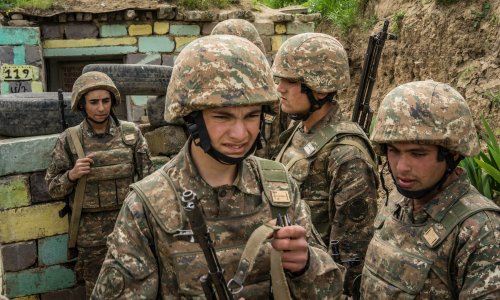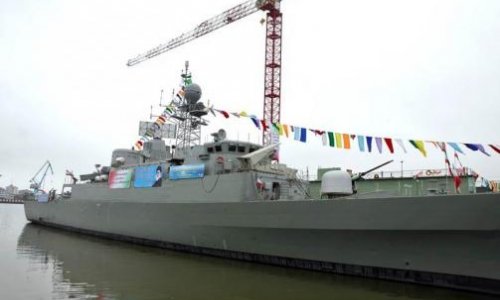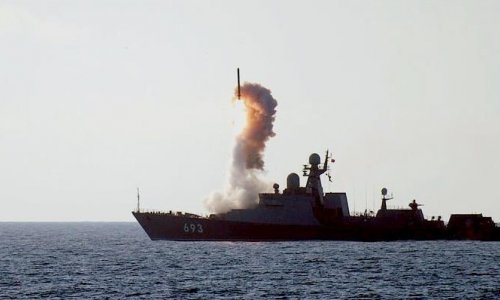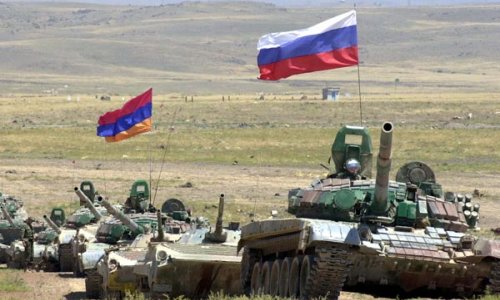There has been growing military cooperation between Turkey, Georgia and Azerbaijan over the past six weeks. From May 31 to June 10, Turkish, Georgian and Azerbaijani military forces held a series of military exercises dubbed "Caucasian Eagle" in eastern Turkey. Several days earlier, on May 25, Baku hosted tactical drills by the armed forces of Azerbaijan and Turkey. These exercises are only a few of those already held this year and represent a continuation of last year's more limited military cooperation.
The recent increase in military activities in the South Caucasus by the three countries coincides on the one hand with Moscow's heavy involvement in the Ukrainian conflict and on the other with Ankara's growing desire to broaden its geopolitical role across its eastern and northeastern frontiers. Moscow will use heightening military activity on the part of Turkey, Georgia and Azerbaijan to justify strengthening its military position in Armenia. At the same time, despite growing cooperation with other neighboring countries, Azerbaijan will still have to depend on Moscow for military equipment and technology.
Analysis
Military cooperation between Azerbaijan and Turkey dates back to 1992, when the two countries established ties in military education. Over the following several years, the partnership extended to other areas such as training and assistance for Azerbaijan's border service. But it was only in 2010 that Azerbaijan and Turkey formed an official strategic partnership that involved promises of mutual military assistance in case of a major conflict. Afterward, Turkey increased its military supplies to Azerbaijan, and both countries started producing military artillery. A significant change occurred in 2012, when for the first time, Georgian forces joined Turkish-Azerbaijani exercises in large numbers. To further cement this development, in summer 2014 the defense ministers of the three countries decided to hold trilateral meetings twice a year and to stage more frequent military exercises.
Yerevan's Perspective
For Armenia, which currently faces serious economic problems coupled with political instability, military exercises between its three neighbors represent a geopolitical problem. Azerbaijan, Turkey and Georgia make up most of Armenia's border. Sandwiched between its rivals Turkey and Azerbaijan, Armenia's operational borders are confined to Georgia to the north and Iran to the south. The uptick in military exercises corresponds with a shifting military balance between Armenia and Azerbaijan, as clashes between the two countries over the past several months along the line of contact in Nagorno-Karabakh have resulted in numerous Armenian casualties and the destruction of military equipment. Azerbaijani President Ilham Aliyev recently stated that the country's forces gained "full superiority" over the Armenian troops. In May, Azerbaijan's western enclave Nakhchivan, which is situated along Armenia's southwestern border, hosted joint tactical exercises with the Turkish military forces and various branches of the armed forces of Turkey and Azerbaijan. For Yerevan this creates the prospect of a possible two-front attack by Azerbaijan, in which Turkey would intervene in case of a major military conflict.
More interesting is Georgia's participation in the military exercises. For Armenia, Georgian territory represents the sole direct gateway to Russia; following Armenia's accession to the Eurasian Union, its need to secure this corridor grew considerably. And from Armenia's standpoint, Georgia's military activation through trilateral agreements and exercises is effectively creating a military belt around most of Armenia. These military activities received unusually little attention from the Armenian media or state officials. Armenia's Defense Ministry in a terse statement announced that hopefully Georgia's military cooperation with Azerbaijan and Turkey would not negatively affect its relations with Armenia.
Russia and Turkey
In April, Russia announced plans to strengthen its military bases in Armenia, Abkhazia, South Ossetia and Kyrgyzstan. The move may be coincidental, but Moscow also recently provided Yerevan with a $200 million loan for military equipment — almost half of Armenian annual defense spending. In addition, Moscow is considering stationing Iskander surface-to-surface ballistic missiles in the country. Moscow may be using Yerevan’s fear of an alleged threat to Armenian security from cooperation between Azerbaijan, Turkey and Georgia as grounds for Russia's increased military presence, as it has recently done in Central Asia by trumpeting the security threat emanating from the Islamic State.
Overall, media coverage of the military drills and subsequent comments by the ministers of the three cooperating countries have been limited to the need to provide security to the South Caucasus region by holding military conferences and sharing military expertise. Beyond this discussion, however, a combination of other more important factors are playing into the rationale for staging joint exercises. Lately Turkey has been reconsidering its geopolitical stance in the South Caucasus. Ankara fears Russia's growing military presence in the South Caucasus following the Russia-Georgia war as well as the increase of Russian forces in Georgia's two breakaway territories. In 2010, Russia extended the lease of the Gyumri military base in Armenia through 2044, and there have been constant drills in Russia-backed separatist regions in the South Caucasus.
To counterbalance the Russians, the Turks need to strengthen their military partnership with Georgia and Azerbaijan. However, considering the logistics, ease of access to the new military equipment and the available resources, Azerbaijan still depends heavily on Moscow. Approximately 85 percent of its military supplies come from Russia, and that is unlikely to change.
The Role Energy Plays
Turkey and Azerbaijan may also be trying to defend regional energy pipelines (the Trans-Anatolian, the Trans Adriatic, Baku-Tbilisi-Ceyhan and Southern Corridor routes) that run from Azerbaijan through Georgia, near Russia-occupied South Ossetia, and continue into eastern Turkey. Those pipelines require protection, as military conflict can endanger energy supply lines. During the Russian-Georgian war in August 2008, when the Russians occupied the city of Gori and effectively cut the country in half, they came threateningly close to the pipelines, prompting their Western operators to shut them down as a precautionary measure.
Another important regional project to be defended is the Baku-Tbilisi-Akhalkalaki-Kars railway, which will economically connect the entire region from the Caspian Sea to eastern Turkey. Estimates say the railway will initially be able to transport up to 6.5 million tons of consignment from Asia to Europe. As Azerbaijani Defense Minister Zakir Hasanov stated during an inaugural meeting with the defense ministers of Georgia and Turkey in Nakhchivan in August 2014, the major reason for holding the drills is the need to protect pipeline and railroad infrastructure that crosses the three countries. From a longer term perspective, close energy cooperation between Turkey, Georgia and Azerbaijan will require military force to secure supply lines. Together these factors likely serve as the three countries' primary motivations for solidifying their military ties.
(Stratfor)
www.ann.az
Follow us !

